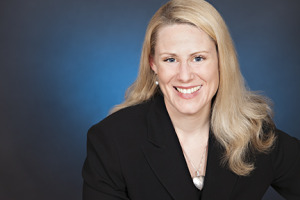
Theresa Lorella
By Theresa Lorella
Attorney at Seattle Divorce Services
Many of the tools that have been discussed in the previous articles in this series that aid parties in lowering conflict and arriving at settlement agreements, have come to us from the world of Collaborative Law. Most Collaborative cases involve parties who have decided to enter such a process prior to filing anything with the court.
Usually one or both parties will begin the process by seeking a consultation with an attorney trained and practicing in Collaboration. Because this process is unique and requires many skills particular to this type of law, the attorneys who practice in this area have been through extensive training to learn how to help facilitate settlement as part of a Team.
Once each party has their respective Collaborative Law attorneys, they begin to work together in a framework that is adapted to each case, but that has similar elements.
A Collaborative case will begin with both of the parties and their attorneys signing a Participation Agreement.
While this contract could be the topic of an entire article on its own, the main point is that everyone in a Collaborative case explicitly agrees that they will not go to court or make threats of going to court if the process starts to get sticky. This acknowledges that things may get difficult, but that everyone is on the same page – trying to keep the conflict down through alternative dispute resolution.
Also of important note, in a Collaborative case, the parties agree to allow the Team members to discuss the case with each other and the other party – with transparency – so that all Team members are aware of what is happening in the case as it progresses.
Once a case is officially under way, the parties and their counsel will determine what other experts are needed to facilitate the process.
In nearly every case, a Divorce Coach is brought on as a Team member. This person will be from the world of mental health care and also trained in Collaborative law. They will meet with both parties together and help work through communication issues that may be causing impasse and anxiety. Similarly, when parenting issues are present, the parents may also work with a Parenting Coach (a person from a childhood development background trained in Collaborative law) to help work through a parenting plan.
Depending on circumstances, these meetings may take place separately from the meetings held between the parties and the attorneys, or they may be asked to attend meetings as well in order to help the attorneys work towards agreement. In nearly every case the parties will also work with a Financial Specialist (a person from a financial background trained in Collaborative law) to help gather financial information and run through possible financial scenarios, child support issues, etc.
As the Team works to gather information, the parties and their attorneys (and possibly the other experts) will have a series of short meetings to begin to determine the parties’ goals and hopes for the future, and to identify how to best achieve these goals for the family.
How many meetings will be required depends on each family’s set of circumstances. While some families may require more meetings or experts than others, the overall result of working through the process in a manner that is intended to reduce conflict, keep the court’s schedule out of the scenario, and to come up with a lasting and durable agreement is often far more efficient economically than the alternative – and certainly more rewarding emotionally.
